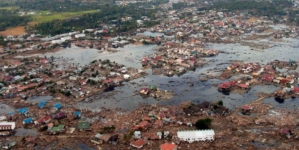-
Did Russia Shoot Down Azeri Plane That Crashed in Kazakhstan? What We Know - 10 mins ago
-
Supermodel Petra Nemcova says it’s still ‘difficult’ to discuss surviving tsunami on its 20th anniversary - 20 mins ago
-
She stabbed her boyfriend to death during a fight. Was it self-defense? - 30 mins ago
-
Man Backed Over Reason He Didn’t Pay for Wife’s ‘Emergency’ Surgery - 50 mins ago
-
Jennifer Love Hewitt calls out aging in Hollywood - 59 mins ago
-
Phoenix Airport Shooting Reports: What We Know - 2 hours ago
-
Triston Casas Trade for Pitcher Now Off Table After Red Sox Sign Walker Buehler - 2 hours ago
-
20 years after a devastating tsunami, a survivor celebrates what the disaster has given him - 3 hours ago
-
How to Watch Lakers vs Warriors, Live Stream NBA, TV Channel - 3 hours ago
-
Heat list Jimmy Butler as doubtful for Thursday after reported trade request - 3 hours ago
As fragile Israel-Hezbollah ceasefire takes hold, what’s next for Gaza?
“We are deeply disappointed that [the Lebanon ceasefire] doesn’t include a hostage release deal — this was a missed opportunity,” said hostage advocacy group Hostages and Missing Families Forum in a private message to the families of hostages that was obtained by NBC News. “These hostages are suffering under intolerable conditions … their safe return must be our sole focus.”
Of the 251 people who were taken hostage on Oct. 7, according to Israeli officials, at least 154 have been released, rescued by the Israel Defense Forces, recovered dead or killed in encounters. At least 97 of those kidnapped are still being by Hamas or other militant groups in Gaza. About a third of them are believed to have been killed.
As the conflict in Gaza has dragged on, Israeli Prime Minister Benjamin Netanyahu has faced criticism internationally and domestically for what critics say is his prioritization of keeping together his fractious hard-right and religious coalition government — and his job — over a ceasefire deal.
Some of his fiercest critics have accused him of maintaining a war footing to prevent elections from being held and the possible resumption of criminal proceedings for graft and other allegations against him, all of which he denies.
Eran Etzion, a former deputy head of the Israeli prime minister’s National Security Council who served in the administrations of hawkish Ariel Sharon and centrist Ehud Olmert, said he believed Netanyahu had “no intention of changing the status quo in Gaza.”
“His whole strategy is political and personal,” he told NBC News.
Etzion, who is now a nonresident scholar at the Washington-based Middle East Institute, said the ceasefire with Hezbollah gives the Israeli military a chance to redistribute its resources toward Gaza.
“If the ceasefire holds, it will provide the Israel Defense Forces with time to recuperate, allow the troops to rest, replenish its arms and munitions,” Etzion said.
Andreas Krieg, a senior lecturer at King’s College London’s school of security studies, said that Netanyahu could be waiting for President-elect Donald Trump to begin his second term to decide on his next moves in Gaza.
The new administration “will give him more leverage and more leeway to continue fighting the war in Gaza,” Krieg said.
Even if Netanyahu were to agree to a deal with Hamas, it is by no means guaranteed that his government would support it.
Numerous polls have shown the Israeli public as divided but ultimately more supportive of a deal with Hezbollah than they are of one with Hamas. Even then, only 37% of Israelis polled the day before the ceasefire with Hezbollah went into effect said they supported a deal. Some 32% said they opposed such a deal in the survey published by Israel’s Channel 12.
Iran will also be preoccupying Israeli leaders.
Not only does the Hezbollah truce undermine Hamas’ position and isolate Gaza, but it also signals a shift in the attitude of both militias’ Iranian backers, according to Charles Hollis, a former British diplomat to Iran.
“Clearly Hezbollah has had a major setback and Hamas has been pretty much dismantled,” he said “The Iranians aren’t going to have nearly as much ability to resupply their proxies because they’re having to shore up their own domestic defense.”
Source link































